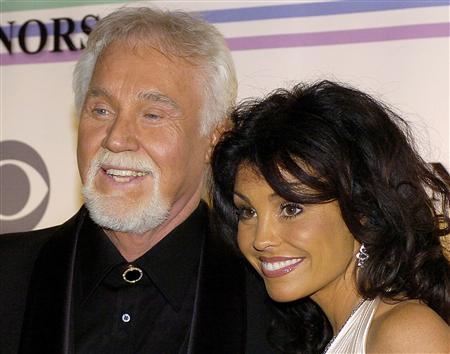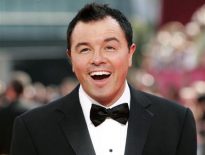(Reuters) – Country music star Kenny Rogers offers a revealing look into his life and five-decade-long musical career in “Luck or Something Like It,” his memoir that will be released on Tuesday.

From his humble beginnings in Depression-era Texas, the Grammy-winning singer paints a portrait of his road to success and how he became one of the world’s best-selling musicians with more than 120 million albums sold worldwide.
Rogers, 74, whose hits include “Lady,” “The Gambler,” “We’ve Got Tonight” and “Lucille,” spoke to Reuters about his childhood, his father’s alcoholism and why he compares music to a mistress.
Q: In what ways do you think your challenging upbringing has helped shaped you?
A: “I think it made me more determined. One of the things I talk about in the book is the fine line between being driven and being selfish. I think there were times in my life I was so driven I became very selfish, and I’m not proud of that. I think it’s a realization I came to when I was writing this book.”
Q: You also share your father’s struggles with alcoholism and its effect on you.
A: “I think that one of the real tragedies in my life is that I never really got to know why my dad drank. He was an alcoholic, but during that time, post-War World Two, a lot of people were unemployed and ended up drinking. He couldn’t really support his family and I think it just broke him down. It breaks my heart that I didn’t know that before he passed away.”
“I never drank in my life. I saw it destroy him and saw it destroy other people I work with, so I made a conscious decision about this. Plus I didn’t know if there was any predetermination for me as the son of an alcoholic to become addicted, so I just never tried it.”
Q: What do you think your father, Floyd Rogers, would have thought about your book?
A: “I think he would appreciate the honesty, the candor and the fact that I don’t take myself that seriously. But I don’t think there is anything in that book that he would be offended by because it’s the truth as I saw it, and that’s really all you can do.”
Q: How about your mom, your siblings?
A: “I don’t think any of my brothers or sisters have read the book yet since it just came out. I’m going to make them buy it. I have to sell all the books I can.”
“I think my mom would have loved it. When I was working on this project, I was told if they like the boy, they’ll love the man. So we spent a lot of time talking about my childhood, how we didn’t have a lot of money and how my mom kind of force-fed us religion. She was a true believer with lots of wisdom. When I once complained about going to church, she told me, ‘You can never be more as an adult than what’s put into you as a child.’ She was amazingly astute for a person with a third grade education.”
Q: You have said: “Music, at least for me, is like a mistress, and she’s a difficult mistress for a wife to compete with.” Can you elaborate?
A: “When I became driven and selfish I was so intent to follow my life that it cost me. I was gone so much from some of my marriages that there was a disconnect.”
“And this may seem like an absurd statement, but every woman I married, I really loved when I married her. And I don’t blame them for the marriage falling apart. I blame myself and my chosen field of music. That’s why I say that music is a mistress, because you can’t wait to get out there to it, and usually the mistress wins in a situation like that. That’s kind of what happened to me. Hey, you can’t say I’m afraid of commitment. I’ve been married five times.”
Q: So is five times (married) the charm?
A: “Wanda and I have been together now for 20 years, been married 15 years. She’s 28 years younger than me, and I say this from the bottom of my heart – she is my soul mate. She knows me better than anyone else has known me. She loves what I do and I’m not as insensitive to her needs as I may have been in the past.”
Q: So who is the Lucille of your famous song?
A: “My mom, whose name is Lucille, got very upset because she thought (the song) was about her. So I told her it’s not about her, because she had eight kids. But she was so angry because she thought I was putting her business on the street. Roger Bowling wrote the song, and whether he knew Lucille or not is hard to tell. It’s a great story song, though.”
(Editing by Patricia Reaney and Claudia Parsons)





